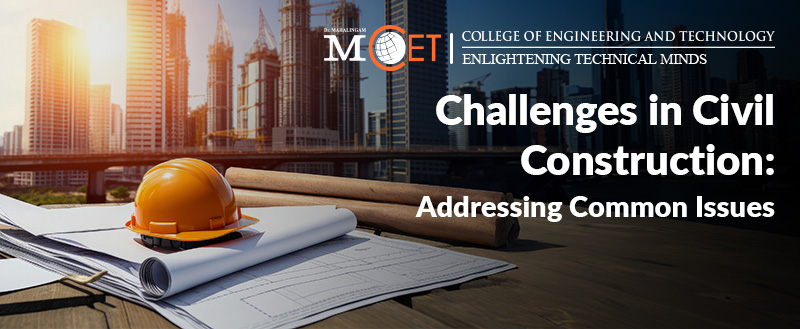Civil construction projects are often subject to shorter timelines compared to other endeavors with built-in safeguards to manage various risks that may unexpectedly arise.
Short-term issues, when overlooked during the planning phase, can rapidly escalate and significantly impact the bottom line of a civil engineering project. These issues may involve unreliable subcontractors, evolving stakeholder needs, and scheduling conflicts, among other factors that could derail the construction process.
Experts strongly advise incorporating contingency plans by allowing flexibility in schedules and hiring workers with safety training certifications to mitigate potential challenges.
A Lack of Structure in Engineering Projects
Without clearly defined objectives, executing civil engineering projects efficiently becomes challenging. Construction timelines can easily slip and budgets exceed limits if specific targets are not set and adhered to.
To address this, experts recommend establishing a well-defined project scope to hold all stakeholders accountable for their roles. Breaking down key responsibilities and objectives into smaller daily targets for different groups of individuals can ensure progress. Any unmet goals should be noted and carried forward to the next day.
Maintaining stakeholder engagement throughout the process is crucial for project success.
Poor Communication in Engineering Construction
Effective communication is paramount in civil engineering projects involving multiple team members. Without clear communication channels, critical tasks can go unnoticed until it’s too late and costly to rectify.
Experts emphasize the importance of establishing a clear communication hierarchy among all stakeholders to keep team members informed about progress and potential obstacles throughout each day of the construction process.
Utilizing in-person meetings or virtual platforms for regular updates ensures timely problem-solving and proactive management of issues.
Unrealistic Expectations and Poor Forecasting in Engineering
Clients often have ambitious expectations for construction projects, such as completing work within limited budgets or tight timelines. These expectations pose challenges if not approached realistically.
To avoid productivity setbacks, it’s essential to break down forecasts into manageable monthly, weekly, and daily goals. Discussing these goals with the construction team ensures feasibility and allows for proactive communication of potential challenges to stakeholders.
Maintaining an alternative plan with achievable budget and schedule breakdowns from the outset helps manage expectations and ensures project success.
Limited Skills and Expertise in Engineering Construction
The construction industry heavily relies on reputation, leading contractors to work with trusted teams. While beneficial for efficiency, this practice can result in skill gaps that delay projects.
Addressing skill gaps requires identifying and promptly addressing deficiencies in the construction team. Engaging construction experts to fill these gaps ensures efficient project execution.
External Factors Impacting Engineering Projects
External factors, such as natural disasters or government interventions, can disrupt construction timelines if contingency plans are not in place.
Mitigating these risks requires proactive planning and contingency measures to minimize disruptions and ensure project continuity.
In conclusion, successful civil engineering projects require proactive risk management, clear communication, realistic goal setting, and skilled workforce management. Identifying and addressing potential issues early in the planning phase ensures smoother project execution and minimizes setbacks.




